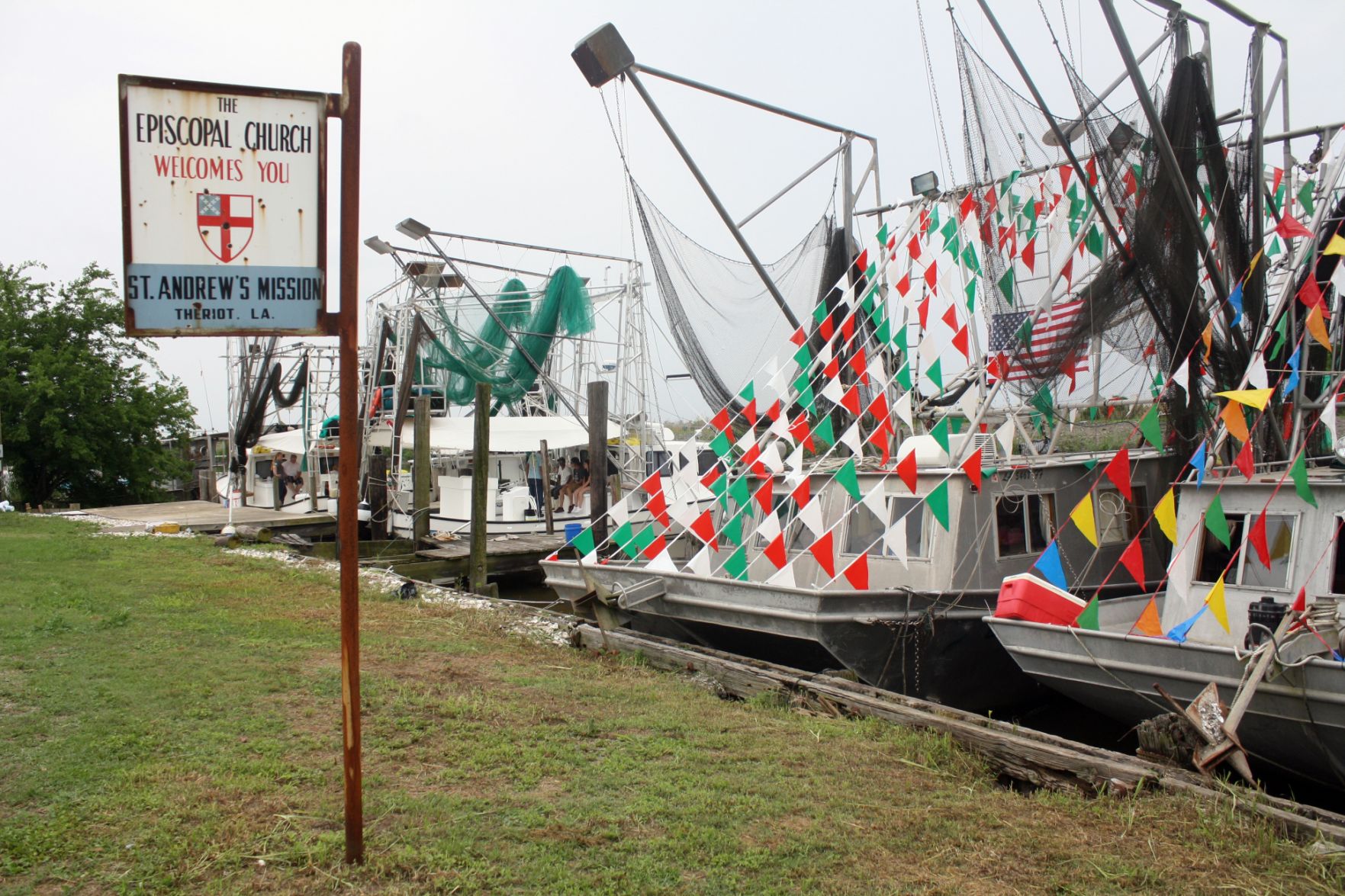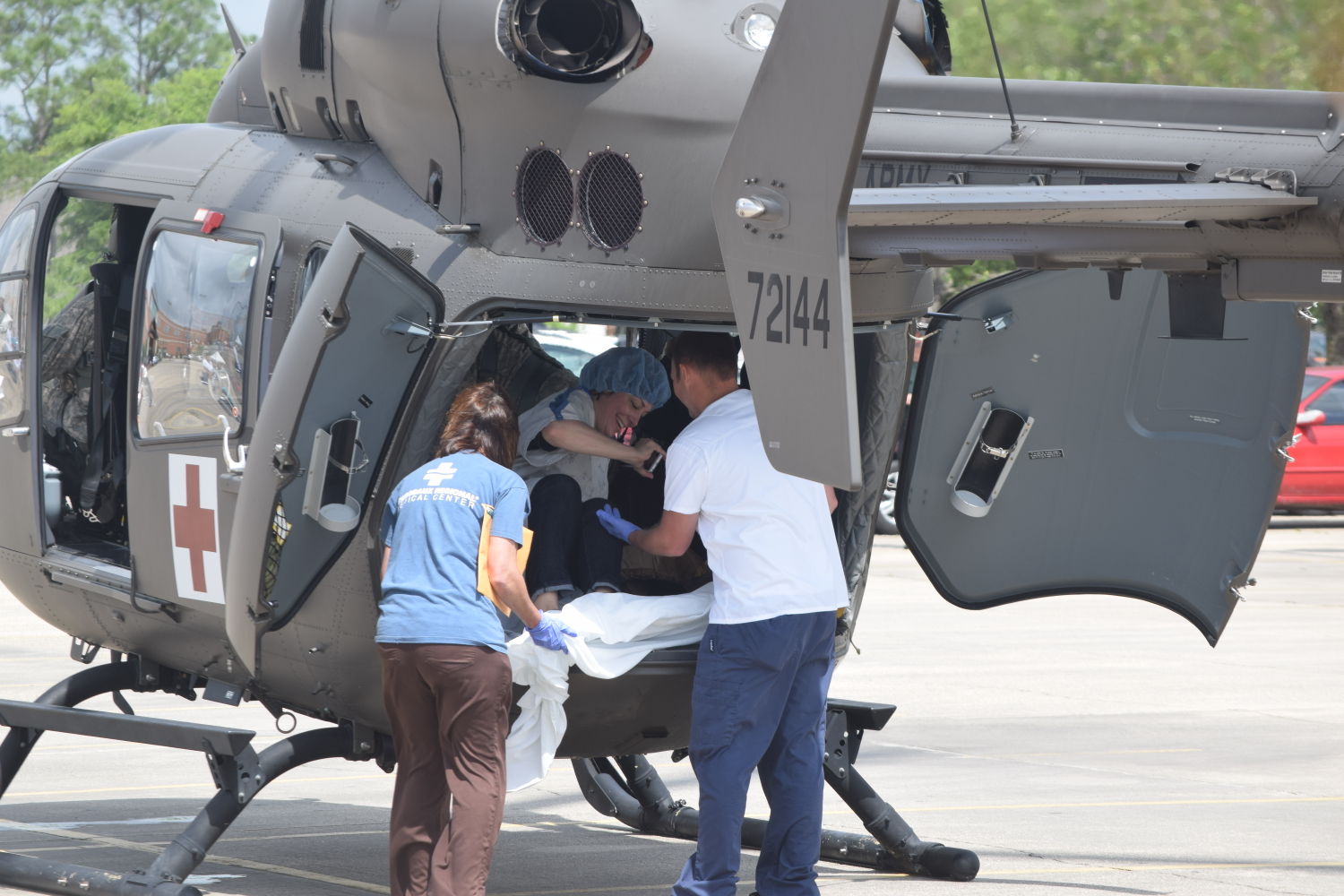
Dularge boat blessing set for Sunday
April 20, 2016
Pedestrian hit this morning in Houma
April 21, 2016A gust of wind pushed onlookers backwards as a Black Hawk helicopter descended from the sky and landed in the Thibodaux Regional Medical Center parking lot.
After the chopper was safe on the ground, a Louisiana National Guardsman stepped out, opened a side door on the vehicle and signaled toward the hospital. With that, four nurses escorted two patients, each in a bed, across the parking lot to load them into the chopper to be whisked away to another hospital. After the Black Hawk got back in the skies, a smaller helicopter dropped down to pick up another patient.
Fortunately, the evacuation was staged, and actual evacuations were not necessary. The event was all part of a statewide emergency preparedness drill, dubbed “Vigilant Guard,” that the medical center participated in.
The weeklong exercise across the state was a product of cooperation between state and federal agencies. The Louisiana National Guard, the Governor’s Office of Homeland Security and Emergency Preparedness, the Department of Defense and the Department of Health and Hospitals teamed up for operations to help prepare the state for crises. The TRMC operation on Friday focused on aeromedical evacuations for patients following a storm.
Thibodaux Regional CEO Greg Stock said the hospital has evacuation exercises about twice a year. He said only a very rare situation would necessitate an evacuation from Thibodaux Regional, noting the hospital stays fully open through most storms. However, he stressed the importance of continuing such drills, as the moments when evacuations are required call for precision.
“The transfer of patients, we’ve come to understand, has to be handled in the best possible way, because those patients are very sick, and they can die just in a transfer,” Stock said.
Kim Beetz acts as the administrative designated regional coordinator for Region 3 in the Department of Health and Hospitals. She said the toughest challenges during medical evacuations are road closures due to high water. Beetz described Thibodaux Regional as “high-risk” because it stays open during and after storms, meaning it could always have patients in need of transfer. She said the scenario for the TRMC operation included road closures after a fake storm, necessitating the choppers’ presence. According to Beetz, getting the evacuation processes down ahead of time makes all the difference when the situations go from hypothetical to real.
“It’s extremely important, because if it doesn’t work before, it certainly won’t happen during,” Beetz said.






